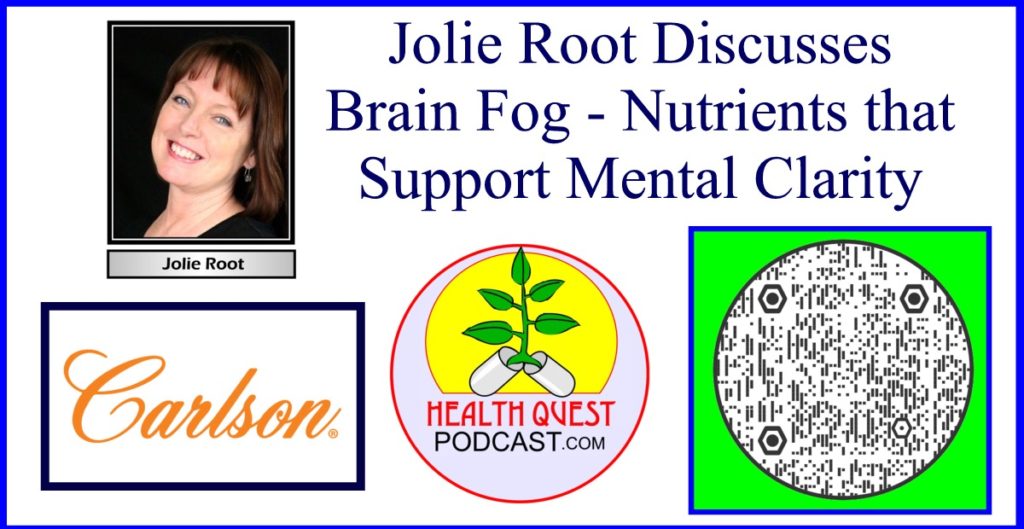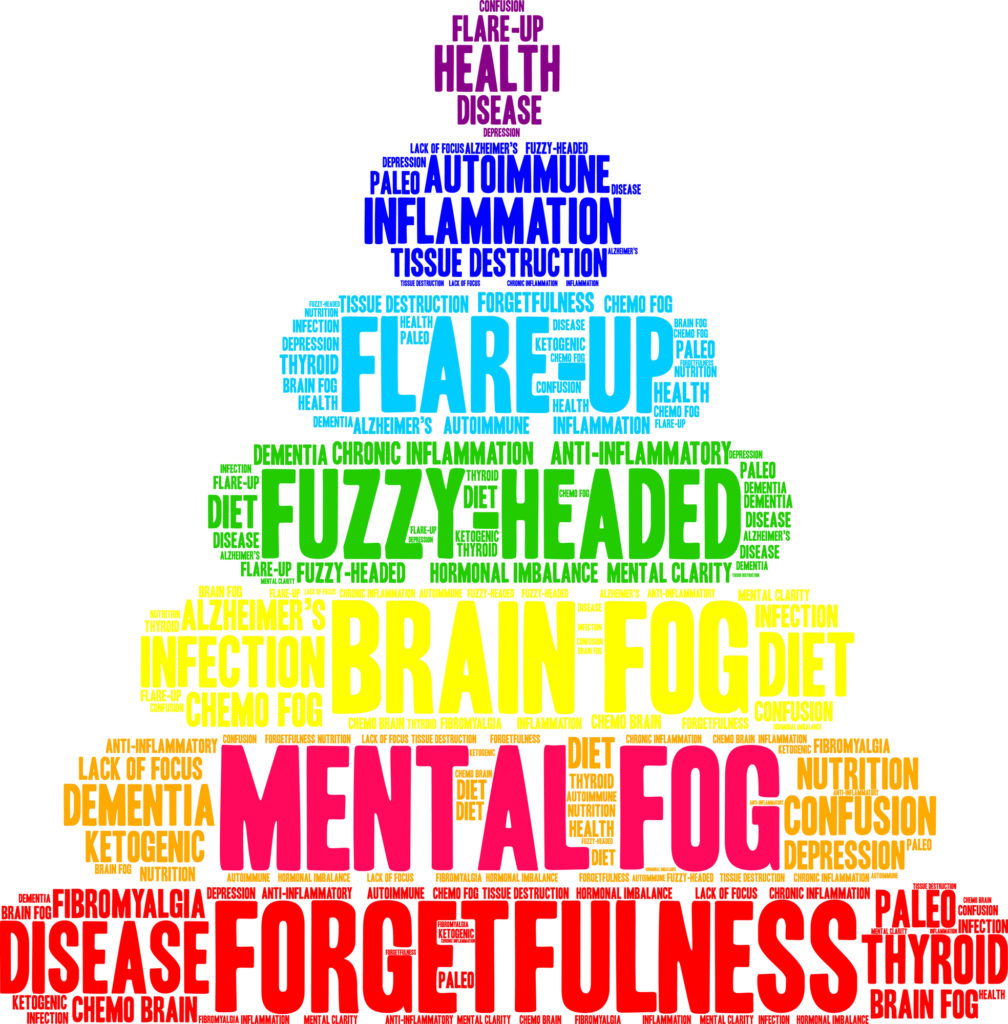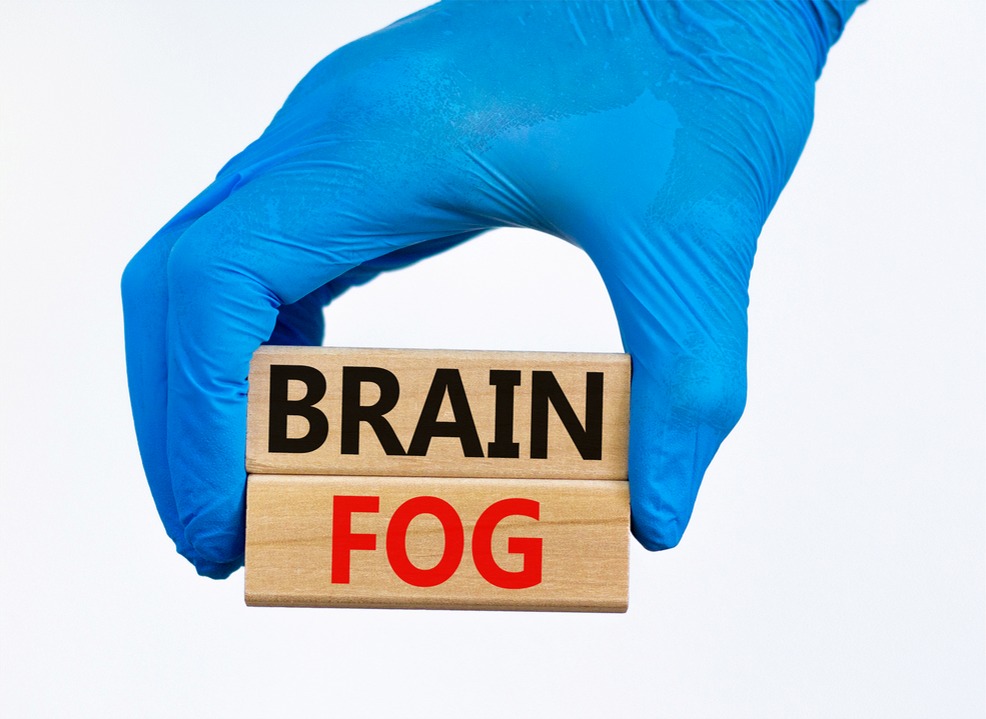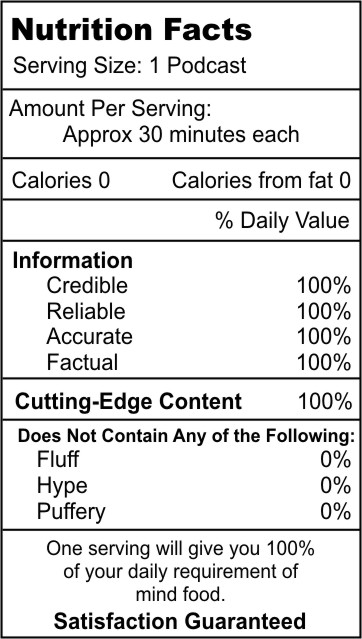Podcast: Play in new window | Download (Duration: 50:54 — 93.6MB)
Inflammation is not destiny.

Jolie Root discusses how nutrition supports brain structure and function.
In this interview you will learn how the best nutrients can support your overall health. That includes brain support, mental clarity, cognition, mood, energy and memory. Proper nutrients enable the body to repair, restore and maintain normal functions. The more you know the better choices you can make. Better choices lead to better outcomes.
IMPORTANT:

I also want to introduce my normal disclaimer here. Because as we get into these topics, often times people are thinking, Well, how do I treat my disease with nutrition? I’m here to say, we don’t treat disease with nutrition! Drugs treat disease, drugs are the purview of the medical profession. If you have a medical problem, certainly see your health practitioner and work with them. On the other hand, nutrition nourishes the body.
And this is what we’re all about, finding ways to use the natural compounds in nature to help the body heal. Drugs aren’t nutrients, nutrients aren’t drugs: even when we refer to studies that used a particular nutrient in its study of whatever human condition. And oftentimes those are diseases that they do use these for study.
When we see these studies, here’s my interpretation. Use in a study doesn’t make a nutrient a drug, it reveals the wonderful benefits of nature, how the body appropriates nutritional compounds to help heal, maintain and restore human health. So let’s not confuse those two, it will help you as you go forward to think about the drugs that the doctors recommend. What are they? What do they do? How do they help you? And what are the risks?
And conversely, think about nutrition. How can nutrition nourish your body? How can it support the structures and the functions of your body? This is the way nutrients exert their benefits. They are not drugs. And it’ll help you if you understand this distinction.

Supplements to support better mental clarity.
- DHA and EPA Omega-3 to boost the signaling between neurons that carry thoughts emotions and support memory and learning.
- DHA to promote nerve growth factor for new neural networks.
- DHA and EPA to balance inflammation in the brain.
- EPA to support microglia synaptic pruning (brain housekeeping).
- DHA EPA and Phosphatidyl Serine to support mental energy, reduce stress hormone levels and boost memory and learning.
- Acetyl L-Carnitine (ALCAR) is a modified amino acid that supports cognitive health, brain function, and energy production.
- Vitamin D3 is a fat-soluble nutrient necessary for brain health. Having low or deficient vitamin D levels may negatively impact cognitive health and contribute to brain fog symptoms.
- Magnesium. Many people don’t get enough magnesium in their diet, which may negatively impact brain health and lead to brain fog symptoms such as difficulty concentrating.
Maintaining optimal magnesium levels through supplementation may help reduce susceptibility to stress and therefore improve stress-related cognitive impairment and brain fog symptoms. Plus, some studies have linked sub-optimal magnesium levels with reduced cognitive function and reaction time as well as increased risk of cognitive impairment.
Show summary. See full transcript below.
- The Impact of Stress and Viral Infections on Brain Fog
- The Impact Inflammation on the Brain
- The Effects of Brain Fog and How to Approach It
- The Different Types of Brain Fog and How to Deal With Them
- The Impact of Sleep Deprivation on Brain Function
- Omega-3 Fatty Acids for Inflammation and Overall Health
- Omega-3s for Brain Fog
- Phosphatidyl serine for Brain Function
- Coenzyme Q10 and Acetyl-L-Carnitine for Brain Health
- Omega-3s for Energy Production
- The Role of Magnesium and Vitamin D in Stress Management
- The Benefits of a Brain-Healthy Diet
- Supplements for a Healthy Lifestyle
Jolie Root
Listen to all Jolie Root interviews.

Jolie Root is the Senior Nutritionist/Educator at Carlson Laboratories. She began as a natural products retailer who evolved into a career in education in the health sciences. She is a nutritionist and a nurse. She understands both the science and the practical application of good nutrition for health. Jolie hosts a weekly radio show called Food for Thought heard Fridays at 10 am on AM 1490 WGCH in Connecticut and New York.
Carlson Laboratories
Listen to all Carlson Labs interviews.
Carlson Labs produces pure, quality, award-winning vitamins, minerals, fish oils, and other nutritional supplements. The company began with a single vitamin E product in Founder Susan Carlson’s small Chicago apartment and quickly grew to offer the most complete line of all-natural vitamin E supplements in the world.
Today, the next generation of Carlson Labs leads the company—daughters Carilyn Anderson and Kirsten Carlson—and the innovations continue. Carlson Labs now offers more than 200 unique products designed with your family’s unique nutritional needs in mind.
Transcript
SUMMARY KEYWORDS
brain fog, brain nutrients, inflammation, omega 6, Jolie Root, Omega 3, acetyl l carnitine, microglia, EPA, DHA, DPA, magnesium, Co Q 10, vitamin D, Carlson Labs, fatigue, phosphatydlserine
SPEAKERS
Jolie Root, Steve Lankford
Steve Lankford

Hello and welcome back to Health Quest Podcast. I’m your host, Steve Lankford. Thanks for joining me, I’m glad you’re here. This is going to be a fun interview for me, because it’s with one of my favorite guests Jolie Root. She’s our most prolific contributor to Health Quest Podcast. She is a prolific educator, this is what she does, she does this for Carlson Laboratories. And if you’ve been a regular listener of our podcast, you’ve heard Jolie, many times. She is the Senior Nutritionist Educator at Carlson, she has a history that just suits this topic very well. She’s been a nurse, she’s been in retail health food, she’s now an educator.
And if there’s one thing that I particularly love about Jolie, it’s this blend of understanding the medical side of issues with the nutritional and lifestyle side of issues. To me, this gives us the best opportunity to explore health in a totality because neither one of us Jolie, myself, we don’t reject modern medical care, we appreciate it very much we understand the importance of it. But we also understand the limitations. It is medical, it’s not nutritional, and our opinion is everybody needs to be well nourished if you’re under a doctor’s care, discuss these issues with your doctor. But you still need to be well nourished in order to get the best results. Whether if you’re healthy, yay for you. But you still need to be well nourished, you’re probably healthy, because you do take care of yourself. So it’s this blend of knowledge that brings an understanding that I particularly appreciate. And I think it’s very good for our listeners to understand these nuances. getting healthy with nutrition is a sophisticated business. It’s an art as much as a science because we’re looking at people as individuals, and we are looking at circumstances, lifestyles, heredity, all kinds of things can play into one person’s health. And two people eating the same diet can have very different outcomes.
So it is a very individualized approach that recognizes this is a journey that each person has to make. Jolie has her own radio show called Food for Thought. I believe it’s on Fridays, and I believe it’s on the internet. So no matter where you are, you can access her weekly content. And I suggest that you do certainly here at Health Quest podcast, this is going to be our 24th interview sponsored by Carlson laboratory. So thank you, Carlson. And it’s I think, Jolie’s 21st Time 22nd Time, she’s been a guest more than any other single person on Health Quest podcast. So thank you, Jolie, for that. Today, our topic is going to be one that a lot of people are hearing about. It’s interesting to me, because I don’t recall it being in such common knowledge amongst even the newscasters these days. And that’s the topic of brain fog. That’s a term I think you’ve probably heard you’ve maybe have even experienced it. It’s that topic we’re going to cover today. What are some of the nutritional implications? What is this thing called brain fog. That’s our topic for today. And it’s in that capacity. I’m pleased to introduce you once again. Jolie Root. Jolie, welcome back to Health Quest podcast.
Jolie Root

Steve, thank you, it’s always really nice to have conversations with you, because you’ve got a background that is very much like mine, and I’m sorry, but if someone has been looking at health, and particularly the way that we approach it, integrative health, functional medicine, nutrition lifestyle, for multiple decades, you get to have a depth of knowledge that a lot of people don’t have, or newcomers to a topic might not have. And so when I say something, you get it. So it’s a lot of fun when we work together, because I think that our conversations may flow so nicely is really the way to put it.
But you mentioned brain fog and that almost everyone now is starting to hear about or consider this topic. I agree. And I think it is important to start with a disclaimer which is saying that I’m not saying that any particular Carlson product is a cure, if you will, for brain fog. And the reason that I would say cure with a situation like brain fog is that we’re starting to see some regulatory attention on the term brain fog because even the health experts in the regulatory agencies are realizing that brain fog is a condition that is secondary to a lot of health challenges that people are facing right now. So we’ve just gone through a couple of difficult years, it is 2022 Right now, and we’re edging up on 2023. And we don’t have to get into long descriptions about what has happened over the last two to three years in public health globally. But what has happened as a result of the events of the last couple of years is lingering complication complications of different kinds of health concerns.
So whether or not a person has had a viral infection, or whether or not a person has been under a tremendous amount of stress, because of what has gone on. For the last couple of years, the changes in society, the changes in the way that we were forced to function. For example, when things were locked down or when people were isolated, even stress could be a situation that could cause changes in the body, that could lead to something like brain fog, which I redefine, if you will, as a disorder of executive function that happens when the brain is unable to focus attention when the brain is unable to hold the information at ready that you need to draw from in order to conduct a task or in order to complete something that you’re working on. And even to the point where we’re unable to block out distractions. And that’s a big thing.
And we’ve had many conversations about stress, we’ve had conversations about the negative impact of social media and the negative impact of people that are doom scrolling all day long on their digital devices, and the stress that that causes for people, there are consequences to all of that. And some of the consequences are physical in nature, some of the consequences are to the point that they affect the function of the different structures in our body, I talk about a disorder of executive function, we’re talking about a situation where memory suffers, but it’s in a different way, compared to degenerative conditions like dementia, or even Alzheimer’s, because the memories are there. But if the executive function isn’t working the way that it should be, the brain doesn’t choose the important things to store, or the important things to retrieve. And so people that have experienced chronic illnesses also can have this kind of condition. Even mild infections can shrink, the brain can create loss of volume in the hippocampus, for example, which is an important area of the brain for processing information and for executive function. And then the other thing we’ve talked about, a lot of times, I will take a breath in a moment and let you speak Steve.
But the other thing that we’ve talked about so many times is inflammation, we have to be very careful with inflammation because it elicits a disease state a lot of times in the minds, again, of people that regulate our industry, I must say. So if you have inflammation in the joints that might be implying that you have something like arthritis, but inflammation is a normal process in the body. However, when we have abnormal environment that we’re navigating, inflammation can get out of hand. And it can lead to disruption of function in places like the neurons in places in the brain like the microglia. And the neurons are signaling. That’s where our thoughts and our memories and our emotions are happening and the microglia are actually housekeepers in the brain. And if they’re not functioning well, then we get a lot of detritus that accumulates, whether it’s actual ends of synaptic neurons, or whether it is oxidative stress that is there because of this poor function.
So when we talk about this issue, we’ve got to talk about the many, many nutrients that can come in to enable the brain to navigate these changes in its structure and come back to normal and I saw a phrase and I liked it so much. I put it on a slide that I’m using in trainings right now and it said inflammation is not destiny. And that’s something that I want to state right at the beginning of our conversation here, which is, none of this is destiny, the beauty of the human body, in my opinion, and the organs and all of the sophisticated, amazing things that our cells and tissues and organs can do is that it’s always evolving. And until the point of deceased, our body responds to good treatment, our body responds to care giving, where whether it’s nutritional, or whether it’s exercise, or whether it is things like stress reduction, or whether it is improving the way that we sleep. All of these conversations that you and I have had leading up to this conversation, have stressed that point that you can be injured, but you can heal, I guess, is the best way to look at this conversation. And what we love to talk about is how, how do we bring that healing about?
Steve Lankford
Well, you said a lot there. And there’s just so much to unpack from that statement. So I want to go back to the beginning of your statement, though, because you made an allusion to the fact that nutritional companies are certainly under the watchdog of the FDA, the FTC. And this is entirely appropriate; this is what their job is. And they want to make sure that companies like Carlson are not making claims to treat disease, cure disease, mitigate disease, or any of that. So let me just state this, clearly, we’re not talking about treating disease, that’s your doctor’s job. That’s what drugs do. So deal with that. On the medical side, what we are talking about are nutrients. Nutrients are not drugs, drugs are not nutrients, let’s not confuse the two. So nutrients nourish the body.
And let me see if this is a clear statement for you to understand to Jolie that when we get benefits from taking nutrition, it’s not that these nutrients go in, and oh, I’m going to fix that arthritis, no nutrients are given to the body, the body appropriates these nutrients, and does what the body needs to do, whether that be a functional benefit, whether it’s a structural benefit, it’s the way nutrients exert their influence in the body is by aiding structure function. Now, oftentimes, there will be clinical studies of all sorts that use people with, quote unquote, disease states, and maybe they will use nutrients to see what the nutritional influences are. But in my mind, if in those studies, they actually get results, it’s an indication of the body’s innate powerful ability to use these nutrients to affect change, healing restoration in the body. Therefore, these benefits are not drug benefits, they are nutritional benefits. However, the language may get a little conflated. Let’s just be clear here that the benefits that we’re talking about are nutritional. And it’s the way the body is able to appropriate, I think it’s an important distinction. I’m always trying to make that with our listeners. Because I think if they understand things that way, they might actually make better choices, because they might be looking at, well, how do I affect the structure of my joints? How do I affect the functioning in my brain?
And these are the things that we want these nutrients, we certainly try them in the hope that providing enough of them will provide the body what it needs. If we don’t eat enough food, we’re going to suffer the answer to that eat more food. It’s not a disease state. It’s a state of condition, because of these issues related to nutrition. So I think we understand that pretty much the same, but it is an explanation to our listeners as to why sometimes our language may be a little couched in the terms that we use, and everybody just has to learn how to deal with that.
And actually, I think it’s good for us to understand and use the concepts of nutrition and teaching it from structure function, because that’s actually I believe, how they work. Actually, I think it’s the body that heals when you’re using drugs, too. But you know, that’s a discussion for another time. So with that disclaimer out of the way, we turn our attention to this thing called brain fog. One of the questions I have is, did we recognize something as brain fog prior to these last two and three years where it seems to emerge from this recent activity, but it seems to me I remember people, oftentimes having problems cognitively or concentrating or feel like they just can’t get a handle on it. I think a fog kind of describes it pretty well, because in a fog, you know, it’s all there, you just can’t see it clearly. And therefore, you can’t function normally. So there isn’t a discussion of what is what we describe as brain fog. And maybe we need a different term, what you were talking about this oversight? Maybe brain fog is not the term we should be using. Maybe that’s being appropriated as a medical term. If so, give us your best overview of how we should approach this in the right way, and how it’s affecting consumers. It seems like every day we’re hearing about it, what is it?
Jolie Root
The way that I see it, and you’re right, it existed long before this. I remember a lot of my friends during their childbearing, I’m beyond that. I’m at the grandmother stage now, but not quite waiting for that first one. But I remember a lot of my friends, in the first few weeks after having delivered a child saying, I don’t know where my brain is, I can’t think straight I feel like what people talk about when they’re talking about senior citizens that wander into a room and then don’t remember why they went there only this is a person that’s in her 20s, or it’s a person that’s in her 30s. But it’s a situation where there’s so much going on, there is so much to attend to, in the first few weeks of a baby’s life for a new mother, that a lot of things kind of just fall through the cracks.
And there are other conditions. Menopause is another condition where women talk about brain fog, or talk about, I just feel like, it’s just gone, I had a thought it’s gone. So it happens at different stages of life for different reasons. But I think of it as a temporary condition that can make it difficult for us to concentrate for us to recall information or hold on to information, or for us to orderly fashion, complete tasks. So I think of this as temporary. And I also couch it as clarity, mental clarity, ease of mental function. So ease of cognition, rather than difficulty with cognition, in case we lose the ability to talk about brain fog as brain fog. I’ve started thinking could I call it and cobwebs that need to be cleared away, especially from the perspective of if the housekeeping isn’t happening in the brain in the appropriate fashion. And this is a structural comment that I’m making here. If the microglia and this usually happens, while we’re sleeping, are not able to go in there and clean out the metabolic waste that might be there because of the production of energy and that those are oxidative compounds, or just tissue that needs to be regenerated. So the ends of neurons, the ends of the synapses, if the microglia are not actually doing that, it’s like when waste management is on strike in your city. And all of a sudden things are accumulating out on the sidewalk, only this is happening in your brain. And that is gunking up the works, if you will, but it’s a structural thing that is impacting function, because now you don’t have a clear avenue for the signaling that is supposed to go on between the neurons, which is your thinking and your ability to retrieve your memories or to create new memories because the other thing that happens while we’re sleeping, aside from this housekeeping function is cementing of memories. And if those things are disrupted, then those things don’t happen and we don’t create longer term memories out of short term experiences. So we’ve got some short term but we don’t actually go ahead and store it as long term memories and this is function that’s impaired because structure was impaired.
The structure function way of approaching things when we talk about nutrition, I think is really helpful. I know you like it, I like it too. Because how do the Omega 3s improve cognition? Well, they are part of the structure of the brain and DHA Omega 3 increases the signaling between the neurons, but EPA Omega 3, powers up those microglia, to do that housekeeping task and clear away the accumulated toxins or waste material, they both work to balance inflammation in the brain. And the inflammation is an underlying factor. That is a side effect, if you will, of whether it’s your stress, or whether it’s your excessive sugar intake, or whether it was some kind of illness that you were navigating the inflammation is one of the things that impairs the function. So that’s the structure function. Understanding on these nutrients, I think is really important for us to be able to encourage people to make the best choices with their diet and with their supplements.
Steve Lankford
Well, I know that’s what we’re going to cover today as what are some of those nutrients that are important? Again, what you said about inflammation, that just resonates with me all the time, because I wonder if inflammation, systemic inflammation, maybe even subclinical inflammation, which we have talked about many times, has a lot to do with this imbalance of the fatty acids in our system. And if those are not regulated or in balance, then we are likely to deal with issues. And so these issues can, in my estimation, and please correct me where I’ve got this wrong, but there’s inflammation. While it may be noticeable or not noticeable, it is functioning actually, throughout your system, these inflammatory compounds.
And therefore, I would think, as I do that, dealing with the inflammation through the use of the Omega 3 fatty acids, that if you don’t correct that imbalance, there’s nothing else I know, that can do that for you in the same way. Therefore, that should be foundational, let’s see if we can get the fatty acid balance going, that’s going to help the body function more normally, with all these other things, which in my wife’s case, and you know, her story, that when her inflammation was brought down into the normal range, through her medication, and through use of Omega 3 fish oils, that every other problem that she had sleeping, constipation, iron metabolism, all of these things seem to improve, as the inflammation tended to normalize, is that something that you see as foundational, that if we don’t get this inflammation improved, that we’re less likely to be successful when we just add these other nutrients? Conversely, if we do get that inflammation, improve these other nutrients that we take may actually then be able to exert their benefits more effectively. Is that a reasonable understanding?
Jolie Root
It is, and what is continually interesting to me and why I’ll never be done with this topic. Even if I were to retire, I think I would still hound the science way that I do. Now, I’m never going to lose interest in this because the point that you’re making here with inflammation, I look at the way that we age, and I look at the way that we begin to lose function as a combination of mechanisms. And I see them primarily as inflammation and having the right balance so that it’s working on your behalf for healing but not against your best efforts as far as chronic conditions or structural health is concerned. So inflammation is one thing.
Glycation, which is damaged from sugar is another thing, and then oxidation, the free radical, the whole antioxidant versus pro oxidant balance that also needs to be struck, and they interact with one another. If you eat too much sugar, yes, it promotes glycation, but that promotes inflammation and oxidation. It creates more free radicals and more inflammatory chemicals. So they interact and they intersect and when you’re talking about Debbie and inflammatory chemistry that was really most noticeable in her joints, but was impacting many other areas of function in her body. Yes, you may have something that is driving excessive inflammation in one area of health or one system in the body. But that inflammation is also occurring elsewhere in the body and impacting health in those organ systems, they’re just not the ones that are catching your attention as strongly as, say, the joints.
So another example of that is somebody that’s got a leaky gut situation going on. And there are bacteria in the gut that are out of balance, and they’re creating these toxins that are leaking into the bloodstream. And where they might notice that the person with that situation may notice that they’re having some awful digestive issues, and whether it’s irritable bowel or those kinds of inflammatory bowel issues and symptoms. But those bacterial endotoxins are traveling everywhere in the body, Steve, so they’re also creating some pain in the joints. And they’re also creating some brain fog. People that have leaky gut syndrome are another example of people that end up with brain fog. And it’s primarily because these bacterial endotoxins are traveling to the brain, and they’re creating some inflammation in the brain. And that is an impairing function. It’s all connected. And when you say the foundation of the Omega 3 contribution, if you will, to balancing inflammation in the body, that is spot on.
Because in North America, and in Western cultures, we’ve got a dramatic imbalance that isn’t good for us of excessive pro inflammatory fats in the diet. Omega 6 is way too many trans fats still there and still wreaking havoc, an under consumption of Omega 3, and we need to get that straightened out. And for years, you know, I mean, oh, my gosh, for decades, I’ve been talking about this. But we’re getting to a point now where we can test the Omega 6 Omega 3 balance, we can test our Omega 3 levels. And if we’re getting people up into target intake, and target ranges on the Omega 3s, we see soothing of so many conditions, we see people that are in target intake, or target Omega 3 index scores that are doing better with cognition, their movement is more comfortable in terms of their joints, they are experiencing brighter mood, just so many benefits, not to mention the granddaddy of them all, which is far fewer incidences of cardiovascular events. Getting that balance with Omega 3, I think is the starting place, Steve,
Steve Lankford
Well, you and I are on the same page. And we have covered it significantly, I think I’m nearly 50 interviews that have Omega 3, as part of the conversation because it is so foundational, and you mentioned the Omega 3 test, you can get your Omega 3 tested very inexpensively, Debbie and I have done it a couple times, it will help you reach your target range. And once you’ve done that, then you start focusing on these other things.
So let’s turn our attention to these nutrients who sent me a list of nutrients that you have been researching, and perhaps their relationship to brain fog. And I know the Omega 3s are a big part of that. So in addition to that these other nutrients, it’s going to be fair to say these are either helping the structure of the brain or the function of the brain, this is what they do. So let’s look at those nutrients and suggest to people get your Omega 3s and get them in significant levels do that consistently.
And then as you apply these other nutrients, you’re likely to see even better benefit from the body’s ability to use those in those ways. And I hope I’m forgiven for overusing this concept of structure function. But I really do hope that people will start to appropriate that understanding, what does this nutrient actually doing for me? Conversely, what’s this other nutrient doing for me? And it’s the synergy of these different nutrients appropriated by the body, that we’re looking to get these benefits. And I do believe a person that is well nourished is going to get better results than one that isn’t so lead us in this discussion of these nutrients that people may want to employ to see how they benefit them individually.
Jolie Root
Well, remembering the foundation of this conversation, which is that nothing is permanent and brain fog is a temporary condition. I approach this whole conversation from the place of what are the nutrients that we know and we have evidence for. And when I say evidence, I mean studies and studies in humans, that have demonstrated an ability to help a person have more mental clarity and help a person have sharper cognitive function, more resilience with cognitive function, better cognitive reserves. And so resilience, cognitive reserve, Google them read about them, because I mean, even Harvard is writing long papers for the public on things like cognitive reserve. So with the recognition that there are all kinds of things that we can do in lifestyle to improve this. So yes, start with the Omega 3s,
I think that we’ve gotten as far as we need to go with that EPA and DHA and there’s a new Omega 3 to start looking for on labels, and that is DPA, it’s always been in your fish oil. It’s an intermediary between EPA and DHA. And it supports mental function, cardiovascular function, the other things that you expect from Omega 3s, but the research is starting to come in a little bit. And so we at Carlson have decided to start calling out DPA on the fish oil labels. So you see that changing on some of the Carlson products and we even are, we just introduced a higher DPA liquid. So that is really very, it’s a three and a half times DHA to EPA ratio with DPA. 300 milligrams in a dose so EPA, DHA, DPA, the Omega 3s very important, but phosphatidylserine, which we have talked about before and is a phospholipid. And they work together with the Omega 3s and phospholipids are part of the structure of membranes in the brain, you have a double layer of linking phospholipids in cell membranes, and particularly in the brain. This is important, because the higher the quality of the structure of that cell membrane, the better the function of that cell, which means everything when we’re talking about cognitive function. phosphatidylserine, EPA and DHA are three nutrients that are actually able to have a direct influence on circulating levels of the stress hormone, cortisol.
And when people are under very high levels of stress, they complain about the symptoms that we’ve been describing collectively as brain fog. So reducing cortisol levels also improves the healthy aging of the brain, because people that are under protracted long periods of unrelenting stress suffer in terms of loss of brain mass and also compromise of brain function. So the phosphatidylserine should be there with the Omega 3s, another nutrient acetyl l carnitine. And here, we’re talking about energy. And the brain is one of the hungriest organs when it comes to the consumption of energy in the body and the necessity for producing a lot of fuel to fuel its function. And it does that with mitochondria in all of the cells that are producing ATP and the acetyl l carnitine. is one of the nutrients carnitine is we call it a transport nutrient, it shuttles the fuels into and oxygen into the mitochondria for the production of energy. So, the acetyl l carnitine is very active in the brain and should be there in order to increase the energy levels that are available for the function of the brain.
And a thing that a lot of times people will complain about, together with any kind of loss of mental clarity is fatigue, and they seem to go hand in hand. So brain fog and fatigue are things that I hear people telling me these are the two things that are making me the most upset brain fog and fatigue. So have to think of them together. So acetyl l carnitine. For energy production in the brain is very important. And in that regard Coenzyme Q 10, which I don’t think even made the list that I sent you, Steve. But CO Q 10is another antioxidant that protects from oxidative stress, it helps to stabilize blood sugar, which we never talked about enough when we talk about CO Q 10. But CO Q 10, is also very central to the production of ATP and energy. So here we’re giving the brain what it needs in terms of fuel for the cells to function.
Steve Lankford
Can I just ask you a question about that? I hate to interrupt your flow. But when we’re talking about the cellular energy and CO Q 10 and acetyl l carnitine? Would it be fair to surmise that if we are deficient in the brain, and we are not getting enough of this to facilitate this energy production, the brain might be where we notice it, but it is likely to be systemic as well. Therefore, it affects energy. So we can assume perhaps that these nutrients that we are talking about for cellular brain health are also going to be necessary throughout the body and that people will likely benefit more than just in their brain by adding these nutrients such as the CO Q 10. And the acetyl l carnitine. Is that a fair guess?
Jolie Root
Absolutely. Think of people that have chronic heart failure, think of those patients and I know that we’re talking now, we are talking about a disease. But that is a failure of the mitochondria in the heart to produce enough ATP to fuel that organ, so that it is strongly capable of pumping of contracting and pumping the blood through the body. That’s the mechanic, if you will, and Coenzyme Q 10, is used by integrative physicians to help increase the cardiac output. So it is of blood to the body. So that’s really what we’re talking about. The brain is the hungriest recipient, anywhere you have that circulation that is improved when the cardiac output, if you will, is improved because of better levels of Coenzyme Q 10.
Steve Lankford
It shows the wonderful efficiency of the body, the body will use these nutrients throughout. And oftentimes people will say, Well, how come it’s just good for the brain? Well, it’s not, it’s used systemically. And the body being very efficient, is going to use these where it’s needed the most. But it is going to be needed, maybe everywhere. And so providing sufficient amounts for the body is again key to seeing results from this nutritional intervention.
Jolie Root
Absolutely. And again, it’s so good that you bring up that maybe our attention is on one thing, but the benefit is on everything. So a little walk after a meal. One of the reasons to do that is that it actually helps with the digestive process, it’s healthier, to go out and walk for 10 minutes, even 10 minutes, even than it is to go flop on the couch after you’ve had your evening meal. It’s really better to stay up and stay active for a while. How is it better? Well, it does improve digestion, but it also reduces stress levels, it also contributes to your physical fitness, it also improves the blood sugar metabolism after the meal so that you get a slower release of blood sugar and a more stable blood sugar level that’s healthy for every organ in the body. So and you probably will sleep better that night for having done that just a simple little thing like that. Oh, and it contributes to longevity.
So you know there are so many additional benefits when we do the right thing for one reason it’s the whole body responds in a healthier fashion and before we leave Omega 3s in this conversation of brain fog and energy production, let me also say that the Omega 3 DHA improves the way that the brain is able to use the glucose as fuel in the brain because our brains can be just like the rest of the body. Insulin resistant they can suffer a little bit from insulin resistance and DHA Omega 3 helps to offset the negative impact of too much sugar in the diet slightly not completely. So I’m not saying oh sure have all the sugar you want, just make sure that you’re taking plenty of DHA Omega 3, and you won’t pay the price for it. But DHA in the brain improves insulin receptor function improves insulin metabolism, and improves the brain’s ability to utilize glucose as a fuel. So I want to make a point of saying that
Steve Lankford
well, and an important point as well. So I know the time just flies when we’re having these conversations, you had mentioned a couple other nutrients that I know people are going to be familiar with. And I want to make sure we don’t miss that. You mentioned vitamin d3, and magnesium, two important nutrients probably most people know of those nutrients. Tell us a little bit about their role in this discussion.
Jolie Root
Well, the magnesium can help to offset some of the impact of stress. But magnesium as people love to say and writers love to write, it actually activates hundreds of enzymes in the body. And some of those enzymes that magnesium activates, help the body to produce the different neurotransmitters that are acetylcholine for memory, serotonin for mood, stable mood, and also the balancing neurotransmitters like GABA that helped to offset the excitatory neurotransmitters that happen when we’re under a lot of stress. So production of neurotransmitters is another issue with magnesium and easing of some of the impact of stress.
And it just has been seen that low magnesium levels are seen in people who are suffering from some cognitive challenges. And that’s also true about vitamin D. So vitamin D in its own right is it supports a brighter mood. But vitamin D is also an anti inflammatory to close that circle one more time, it down regulates the production of some of the pro inflammatory compounds like C reactive protein and some of the interleukins. So balancing inflammation, a brighter mood helping to resolve some of the protracted stress levels and the production of neurotransmitters are where those two nutrients would play a role in this conversation.
Steve Lankford
Well, it’s interesting, because these nutrients are almost ubiquitous, and serve so many purposes, that everybody who’s listening to this might already even be on those nutrients. So we’ve expanded why those nutrients might be important. If somebody were to embark upon this program, somebody who is say new to this concept of, say, using fish oil, vitamin D, CO Q 10, and so on, if they were to embark upon this program, what might you suggest to them that would benefit them over the long term? How long should they give it in order to be able to make reasonable assumption about do I want to continue this or not? Is it benefiting me,
Jolie Root
what I’ve been reading about some of the newer cases of brain fog is that it can be anywhere from six to nine months of duration to as much as two years, I would feed my brain for the long term, because of the benefit of the structure and the function that has been demonstrated with most of these nutrients. And if you think about the things that we talked about, with a couple of exceptions, not everyone would be taking something like the acetyl l carnitine. Or the phosphatydlserine, for example, but we’ve had conversations about core four before, which is like how do you build a supplement regimen? How do you get started if you just never really have and a multivitamin, which will provide a lot of the B complex but also some of the magnesium. So a multivitamin, the Omega 3s, a probiotic which is going to help in the microbiome and going to help with that idea of the leaky gut that we don’t want that because the endotoxins that migrate and CO Q 10 would be part of my core four because of the need for the production of ATP throughout life and it declines as we get older, the multi would be providing some of the antioxidants that we need. And we can just go on and on and on about supplements that are beneficial, but at least starting with something like a foundational a multi, the Omega 3, vitamin D, co q 10. a probiotic, those would be where I would start. And I would be thinking that those are long term for me, because I can’t think of a single decade of life where those things are not important.
Steve Lankford
I think that’s such a key point right there. And to encourage people don’t stop, just because you’re not seeing the results, obviously to you, it may be even a sign that you need to continue this focus, because without being well nourished, you can’t possibly get all of those benefits. And so it just happens to be a long term situation. Now, I’ve alluded to my wife and her rheumatoid arthritis, a long term situation, it took months to see the results of some of the things that we were doing. But our belief was, we need to be well nourished, or we won’t get these nutritional benefits. And therefore, don’t get discouraged realize these are core nutrients that your body needs, will use, and will facilitate your benefit. Whatever your body is able to do, it will do. And you just continue that support, lifestyle improvements, and so on. And we’ve talked about many of those, if they just listened to our interviews that you and I have done, they’ll have a really broad understanding of the benefits that are to be achieved. Well, Jolie, as you know, our time has flown by. But I always want to give you the last word, is there anything that we didn’t cover today that you want to make sure that our listeners hear?
Jolie Root
Well, I think that the supplements are very important. But we need to start with the foundation of a very healthy diet, getting the rest that we need, which means paying attention to our sleep hygiene, for the reasons that we mentioned, important things happen in your brain when you’re sleeping, but getting the rest that we need, getting some exercise, getting some time with loved ones, all of the things that we keep coming back to that are so important. also play a role in this conversation and put down the digital devices and go out and take a walk in the sunshine, go out and spend time with friends and family. And I think that all of those things combined, can bring you through anything you’re dealing with, whether it’s this topic or any of the others that might be concerns.
Steve Lankford
Well, and again, it comes down to a person that is well nourished, and a healthy lifestyle. And we’ve covered this before. I’ve heard them called nature’s doctors, sunshine, pure water, exercise, happy thoughts, spiritual life, all of the things that make up a well rounded, healthy life need to be considered as foundational, not just supplements, because supplements are just that they are supplemental to a healthy lifestyle, but they don’t replace what you won’t do for yourself. So we are strong proponents of incorporating these as part of your lifestyle plan.
And our experience has been I know, it’s been years, it’s been mind that people who do this diligently, with purpose, with consistency over time, will get the benefits. Certainly you won’t get those benefits if you don’t employ some of those tools. So we want to encourage you as our listeners to do that. Go back and listen to some of these other interviews with Jolie. If you want to know about diet, and sleep and stress and mood and fish oil and inflammation, we’ve covered all of those things for you in very good detail. And you can appropriate those at your leisure. Listen to them when you’re taking your walk. And you’ll enjoy two benefits at the same time. Well, Joliee, as always, it’s been most interesting, and I look forward to every conversation that we have. And I look forward to our next one. So thank you so much.
Jolie Root
You’re welcome, Steve, thanks for your time today.
Steve Lankford
And you too, Jolie, I wish you the best and we’ll talk again soon. Bye bye
Jolie Root
Bye.












{ 0 comments… add one now }